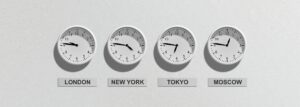Total views 2,080 , and 2 views today
Importance or Need of Resume:
Whenever any working professional get bored of his/her routine job or is not satisfied with his/her current CTC and when college student come in their final year of Academics, only in these two situations do people have these questions in their mind: how can I find a job? or how I will get the job? … am I right?


The answer is obviously Yes … because most of the people often get bored of their routine job and most of the students intend to support their family after completion of education by Landing to the Job.
As a professional also we struggle a lot while creating a Resume. because it lets us think about ourselves, about our skills, about our strengths and Weaknesses, about our expertise, about our knowledge and experience. And as per my opinion, it is good to keep our Resume updated quarterly.
To get selected for an interview and for landing a job, a Resume/CV plays the most important role as a document. It is going to represent you to the recruiter before you meet them, so fundamentally it is your first impression to the recruiter.
It is very important that you prepare a perfect and brief Resume. But most of us get confused about what to prepare? Whether Resume, CV (Curriculum Vitae), or Biodata. So, let’s understand the difference between each.


What is the difference between Resume, CV, and Biodata?
Fun Fact: Everyone gets stuck here! When we start preparing for an interview and decide to create a resume, generally we all get confused between CV, Resume, and Biodata.
So, let’s clear this confusion:
Resume:
The resume is a very short document that is specifically prepared and customized for searching for Jobs. It is generally 1 page and sometimes a maximum of up to 2 pages long document.
Resume word is derived from the French language, which means “Summary”.
Resume Contains Name, Brief description of your profession, Education details, Skills, more focused on recent work experience, Previous experience in reverse order, sometimes location, list only relevant certifications as per Job description, Languages known and their proficiency.
A resume can be customized according to the Job description that you are applying for.
Curriculum Vitae (CV):
CV term refers to Curriculum Vitae which is a Latin word and refers to “One’s Entire Course of life”.
It is a very detailed document with no limitations on pages. it can be of more than 5 pages also. isn’t it amazing?…
It contains your all skills, Detailed previous experiences, all previous job positions held, it is used to highlight your general skills rather than a specific skill.
A CV contains all the details about your whole career. It also contains short biographic details like DOB, Gender, Hobbies, nationality address, etc.
You can prepare your CV once and update new things to it when required.
Biodata:
Biodata stands for “Biographic data”.
This word was often used for CV and Resume back in the early 90s mostly in India. Nowadays place of the biodata is replaced by Resume and CV and Biodata is only used for arranging marriage purposes. Where two parents send Biodata to other parties.
Biodata mainly contains details about Name, DOB (Date of birth), Height, Weight, Gender, Religion, Caste, Nationality, and address then brief details about education, work experience, small insight on income source, CTC, etc.
Generally, it is normal practice to include your friends, Relatives, Social leaders as a reference with their basic details and contact no.
In Biodata there is no limit of pages you can write as many things as you want them to be on this document.
Unless an employer specifically asked you for a CV or you work in a field where CVs are standard, it’s best to submit a resume over a CV.
Few standard requirements for building your Resume:
- Name, DOB (Date of birth) (Optional), Email ID, LinkedIn profile
- Your Qualification with grades. (SSC/HSC/Graduation/Post Graduation)
- Your current location. (Preferably a city is a good option)
- Always keep your contact details clear and updated it is the only way the recruiter can communicate with you.
- Languages Know (Mention your proficiency into it)
- Additional Courses you have completed rather than your academics
- Mention any social activity you have done before (It may contain NCC, NSS, Scout guide, or association with any NGO)
- Mention your hobbies. (For freshers)


- Do not forget to add your achievements.
- Mention your skills. (i.e., what you are good at) (Your Strength and weaknesses)
- Mention your internship work if you had any. (For fresher)
- Mention your brief work experience. (For working professionals)
- You can use your photograph in your resume if you feel to share it. (Not Mandatory)
- Provide some links to your work or Project. (If have any) (E.g., Youtubers can provide a link to their vlog, Digital Marketers can provide a link to their created landing pages, Web developers can provide a link to their work, Content writers can provide a link to their blog)
- Declaration. (Not mandatory)
What you should avoid:
- Don’t copy from your friend. (You can refer to someone’s format but don’t copy its content, it is the most common mistake most the people do)
- Avoid Feeding unnecessary data keep your resume as short as possible. (In this competitive time recruiters receive tons of resumes, but they have very little time to go through the whole resume so if you feed unnecessary data there are more chances, they may not find your related data and may reject your application.)
- Do not mention something that you are not capable of doing.
- Do not use different fonts. Maintain uniformity of your Resume document.
How to select or prepare a template for Resume/CV/Biodata:
Your template is dependent on the work you are going to do. for example, if you are an artist and you select the template which generally engineers use or follow then it is obvious that you’re doing wrong.
For an artist, his resume should be more creative, decorative, and colorful. It may include some visuals also.
Please do refer to some templets online for reference and accordingly create your Resume/CV.
Different types of Resumes/CV/Biodata:
- Document type resume
- Video Resume
Where to Create a Perfect Resume/CV/Biodata?
Microsoft word for windows and pages for the macOS is the best options for creating your document.
There are so many paid software/Platforms available in the market which can help you to prepare one.
Always refer to some blogs and Videos if you do not get an idea of how to create this document.
Here is one reference template for Creating Resume:


For your question regarding how to prepare for an interview read our blog on 10ESSENTIAL THINGS EVERY STUDENT/PROFESSIONAL SHOULD KEEP IN THEIR MIND BEFORE APPEARING IN AN INTERVIEW
For reading more blogs Click Here
Ref: https://www.zigsaw.in/jobs/difference-between-cv-resume-and-biodata/
https://www.getsetresumes.com/blog/143-difference-between-resume-cv-and-biodata/


Pingback: 10 Essential things to keep in mind before appearing in an interview